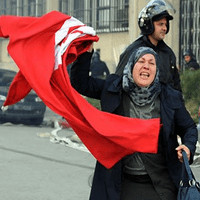The future of women's rights in the Arab Spring countries has been an open worry in recent months. Observers have noted there are no women in the transitional government in Egypt. Fundamentalist elements in Yemen that had opposed raising the marriage age for girls, currently at 8 years old, are among the chief opposition forces trying to bring down the Saleh government. Paraphrasing T.S. Eliot, spring might well be the cruelest season for women in the Arab world.
It is in this context that recent reports in the Egyptian media are so troubling. According to the Egyptian Center for Women's Rights (ECWR) in Cairo, a proposal is being considered that would drop the existing quota for women in the Egyptian parliament in the upcoming election to determine the first post-Mubarak government. Such a quota for women was first imposed in Egypt at the party level in 1983, meaning a certain proportion of all party lists had to be women. This greatly increased women's presence in the lower house of the national legislature, from less than 5 percent before the quota was instituted to approximately 9 percent after. However, when Egypt moved from a proportional-list system to an individual-election system in 1990, the quota system was abandoned, a situation that lasted until 2010, when the Mubarak government applied an outright quota of 64 parliamentary seats for women out of 504 seats overall, or about 13 percent.
It is this 64-seat quota that will be dropped, according to reports in the Egyptian media. Interestingly, another quota -- that 50 percent of the People's Assembly be farmers and workers -- does not figure in the reported discussions, leading observers to wonder whether the issue of quotas or the issue of women in government is the underlying concern. Reacting to these reports, women's organizations in Egypt have called for the quota to either be maintained, or for a 3-3-4 party list system to be instituted. In that system, a woman candidate must figure among the first three listed candidates, among the second three listed candidates and then among the next four listed candidates. As Noha El Khoury of the ECWR has written with great concern, the status of Egyptian women "is not getting better" after the revolution.

